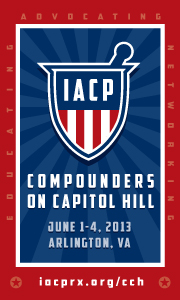|
Editorial: Documentation vs Opinion on Compounding Regulatory Activities IV
This continues the series looking at some of these 483 observations and Board of Pharmacy activities and provides documentation surrounding these specific activities.
Observation: Reserve samples are not retained for one year after the expiration date.
United States Pharmacopeia (USP) Standards:
General Notices 10.40.100.1 Compounded Preparations
"�Because compounded preparations are intended for administration immediately or following short-term storage, their beyond-use dates [BUDs] may be assigned based on criteria different from those applied to assigning expiration dates to manufactured drug products."
Comments:
Reserve samples are not a requirement for compounding pharmacy. Prescriptions are NOT samples. The USP does not state that reserve samples are required. This requirement is for GMP facilities and relates to stability and bioequivalency samples that must be retained for one year. The USP General Notices plainly state that compounded preparations must contain a (BUD) and this BUD can be determined differently than the procedures required by the FDA for establishing expiration dates. Expiration dates are applied to manufactured products with an expected shelf life of about 2 to 3 years. BUDs are for up to 6 months but generally much shorter than that.
In addition, the maximum BUD for compounded preparations is generally up to only 6 months. It is useless to store a preparation for one year after the BUD of the drug (i.e., up to 18 months total). Also, this is not practical. If a pharmacy compounds about 100 preparations per day and is open 250 days per year, this is 25,000 "samples" that must be retained for one year (again, not practical). Manufacturers do only a very few different products or bioequivalency studies per day so their storage is more reasonable.
Also, patient-specific compounding does not include compounding excess preparation as retention samples because that excess would be non-patient specific preparation.
Summary:
The observation that reserve samples are not retained for one year after the expiration date does NOT apply to compounding pharmacies licensed by the state boards of pharmacy.
Loyd V. Allen, Jr., PhD, RPh
Editor-in-Chief
International Journal of Pharmaceutical Compounding
Remington: The Science and Practice of Pharmacy
| 



